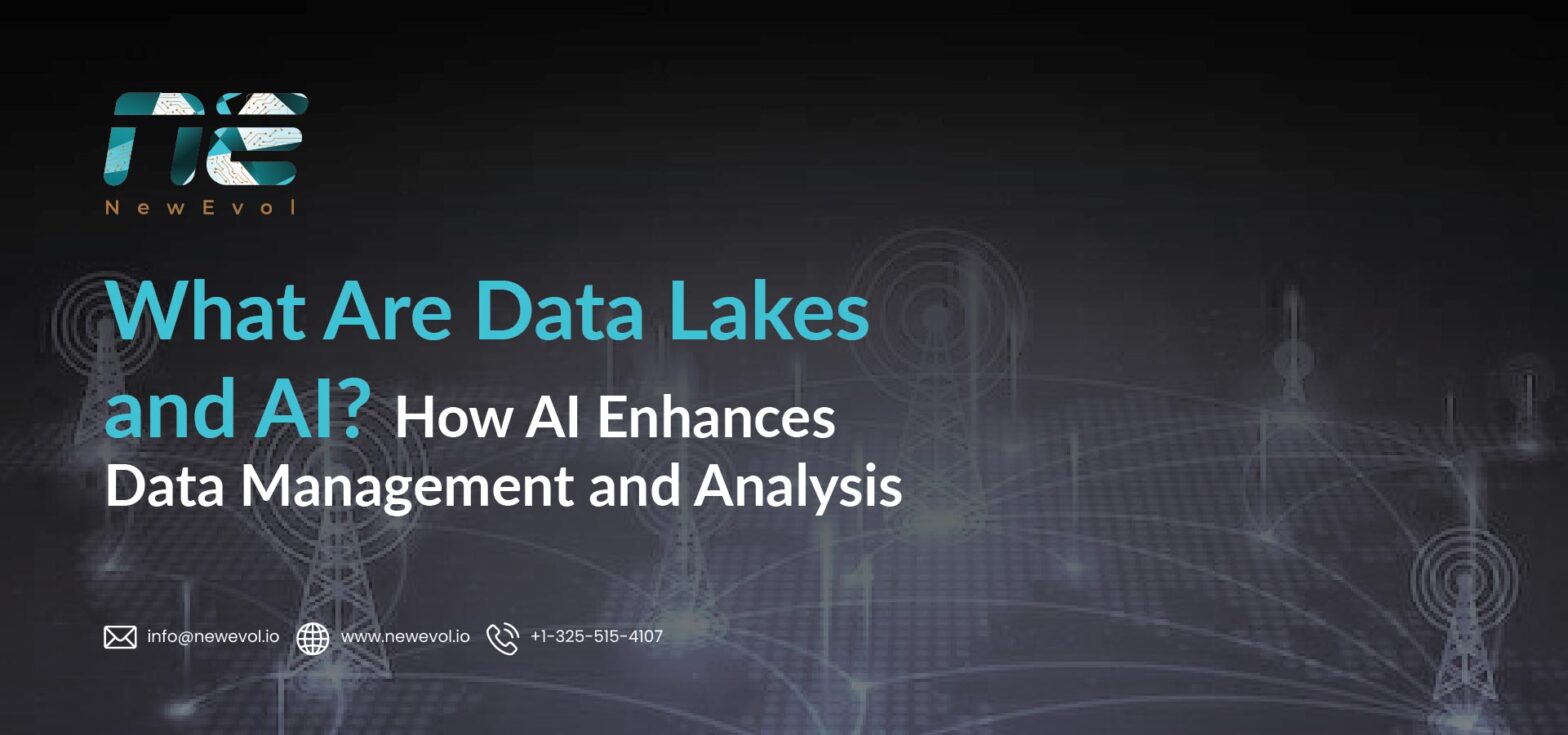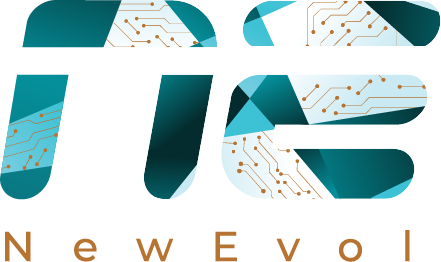What Are Data Lakes and AI? How AI Enhances Data Management and Analysis

Malaysian enterprises across finance, healthcare, e-commerce, and manufacturing are generating data at an unprecedented scale. From transaction records and customer interactions to IoT sensor data and operational logs, organizations are inundated with information. The challenge lies not in collecting data but in organizing, managing, and deriving actionable insights from it.
The global data lake market size is projected to grow from around USD 18.4 billion in 2025 to USD 57.9 billion by 2032, with a CAGR of approximately 17.7%
This is where data lakes and artificial intelligence (AI) converge to transform enterprise data management. Together, they enable organizations in Malaysia to store vast volumes of structured and unstructured data and analyze it intelligently, unlocking strategic value while improving operational efficiency. To address these challenges securely, many businesses are increasingly relying on cybersecurity services in Malaysia that safeguard data while enabling advanced analytics.
Understanding Data Lakes
A data lake is a centralized repository that allows organizations to store all types of data at any scale. Unlike traditional databases, which require structured formats, data lakes can hold structured, semi-structured, and unstructured data—ranging from SQL databases and spreadsheets to social media feeds, images, videos, and log files.
Key features of data lakes include:
- Scalability – Capable of storing massive datasets without predefined schema restrictions.
- Flexibility – Supports multiple data formats, including JSON, XML, CSV, and multimedia files.
- Centralization – Consolidates data from disparate sources into a single repository for easier access and management.
- Accessibility for Analytics – Enables data scientists, analysts, and AI models to access raw data for advanced analytics.
In Malaysia, where businesses are rapidly adopting cloud computing and hybrid IT infrastructures, data lakes provide a robust foundation for modern analytics and AI-driven insights.
What is AI in the Context of Data Management?
Artificial Intelligence (AI) refers to the simulation of human intelligence in machines capable of learning, reasoning, and decision-making. In the context of data management, AI automates processes such as:
- Data ingestion and cleansing – Ensuring data is accurate, consistent, and ready for analysis.
- Data classification and tagging – Organizing raw data to improve searchability and retrieval.
- Predictive and prescriptive analytics – Forecasting trends, detecting anomalies, and recommending actions based on historical and real-time data.
When combined with data lakes, AI can unlock actionable insights from massive, complex datasets, transforming raw information into a strategic asset.
How AI Enhances Data Management
Data lakes, while powerful, can become overwhelming if not managed efficiently. AI addresses this challenge by providing automation, intelligence, and scalability in data management:
1. Intelligent Data Ingestion
AI automates the ingestion of data from multiple sources, ensuring that it is captured accurately and efficiently. For Malaysian enterprises, this may include integrating data from ERP systems, e-commerce platforms, IoT devices, or government databases. AI algorithms can detect patterns, deduplicate records, and ensure that incoming data conforms to quality standards.
2. Data Cleansing and Enrichment
Raw data is often inconsistent, incomplete, or erroneous. AI-powered tools can identify anomalies, correct errors, and enrich datasets by adding missing information or contextual metadata. For example, in Malaysia’s retail sector, AI can standardize customer data across multiple sales channels, ensuring accurate segmentation for marketing campaigns.
3. Automated Metadata Generation and Data Cataloging
A critical aspect of managing a data lake is making data discoverable. AI can automatically generate metadata, classify datasets, and tag them based on content, source, and relevance. This not only accelerates data retrieval but also improves governance and compliance with Malaysia’s Personal Data Protection Act (PDPA).
4. Predictive Analytics and Trend Detection
AI enhances the analytical capabilities of data lakes by applying machine learning models to predict future trends. For example:
- Financial institutions in Malaysia can forecast credit risk using historical transaction data.
- Manufacturing firms can anticipate machinery failures by analyzing IoT sensor data.
- E-commerce platforms can optimize inventory management based on predicted customer demand.
These insights enable organizations to make proactive, data-driven decisions rather than reactive ones.
5. Anomaly Detection and Security
AI models can monitor data streams within the data lake for unusual patterns or potential security breaches. For Malaysian enterprises handling sensitive data, such as banking or healthcare records, AI-driven anomaly detection ensures that irregular access or suspicious transactions are flagged in real-time, strengthening overall cybersecurity.
6. Data Democratization and Self-Service Analytics
AI can create intuitive interfaces and natural language queries for business users, enabling them to access insights without deep technical expertise. In Malaysia, this democratization allows departments such as marketing, operations, and HR to leverage data for decision-making without relying solely on IT teams.
Benefits of Integrating AI with Data Lakes
- Scalability for Big Data – AI allows organizations to analyze massive datasets without bottlenecks.
- Improved Data Quality – Automated cleansing and enrichment ensure accurate analytics.
- Faster Insights – Real-time AI analytics reduces the time between data acquisition and actionable insights.
- Enhanced Decision-Making – Predictive and prescriptive analytics guide strategic planning and operational efficiency.
- Regulatory Compliance – AI aids in tagging and managing sensitive data in accordance with Malaysia’s PDPA.
- Operational Efficiency – Automation reduces manual tasks, freeing up teams for higher-value activities.
Real-World Applications in Malaysia
Several sectors in Malaysia are already reaping the benefits of combining data lakes with AI:
- Financial Services: Banks use AI-powered data lakes to analyze transactions, detect fraud, and optimize credit risk models.
- Healthcare: Hospitals leverage patient data from multiple sources for predictive diagnostics and personalized treatment plans.
- Retail and E-commerce: Companies use AI-driven analytics to understand consumer behavior, manage inventory, and enhance customer experiences.
- Manufacturing: AI models analyze sensor data to predict machinery failures, reduce downtime, and optimize production schedules.
Challenges and Best Practices
While AI and data lakes provide tremendous potential, their implementation is not without challenges:
- Data Governance – Without proper governance, data lakes can become “data swamps” with unmanageable volumes of unstructured data.
- Data Security and Privacy – AI systems require access to sensitive information, necessitating robust encryption, access control, and compliance measures.
- Skill Gaps – Developing and managing AI-powered data lakes requires specialized expertise.
To overcome these challenges, Malaysian enterprises should adopt best practices such as:
- Define Clear Objectives – Align AI initiatives with business goals.
- Implement Strong Data Governance Policies – Ensure data quality, compliance, and access control.
- Leverage Cloud Scalability – Utilize cloud platforms to handle large-scale data storage and processing.
- Invest in Training and Talent – Build AI and data analytics capabilities internally or through strategic partnerships.
- Monitor and Optimize Continuously – Regularly evaluate AI models for accuracy, bias, and performance.
NewEvol’s Approach to AI-Driven Data Lakes
NewEvol provides enterprises in Malaysia with integrated solutions for building intelligent data lakes powered by AI. Our platform enables organizations to:
- Ingest and unify data from multiple sources seamlessly.
- Cleanse, enrich, and catalog datasets automatically for faster analysis.
- Apply AI-driven analytics for predictive insights, anomaly detection, and trend forecasting.
- Ensure regulatory compliance with PDPA-aligned data management practices.
- Empower business users with self-service analytics and natural language query capabilities.
By leveraging NewEvol’s AI-enhanced data lakes, Malaysian enterprises can turn data into a strategic asset, enabling smarter decisions, improved operational efficiency, and competitive advantage in an increasingly data-driven market.
End Note
As Malaysia accelerates its digital transformation journey, enterprises must find innovative ways to manage and analyze the ever-growing volumes of data. Data lakes provide the scalable infrastructure to store diverse datasets, while AI adds the intelligence to transform raw data into actionable insights.
The integration of AI with data lakes allows organizations to automate data management, improve accuracy, detect anomalies, and derive predictive insights—turning complex data challenges into opportunities for growth and innovation.
For Malaysian businesses seeking to stay ahead, adopting AI-powered data lake solutions from NewEvol is no longer a futuristic concept—it is a strategic necessity for thriving in a data-driven economy.
FAQs
1. What is a data lake?
A data lake is a centralized repository that stores structured, semi-structured, and unstructured data from multiple sources at any scale.
2. How does AI enhance data lakes?
AI automates data ingestion, cleansing, classification, anomaly detection, and predictive analytics, making large datasets actionable.
3. Why are AI-driven data lakes important for Malaysian enterprises?
They enable real-time insights, improve operational efficiency, and ensure compliance with Malaysia’s PDPA and industry regulations.
4. Can non-technical users access AI insights from data lakes?
Yes. AI-powered self-service analytics and natural language queries allow business users to explore insights without technical expertise.
5. How does NewEvol help with AI-powered data lakes?
NewEvol provides integrated platforms that unify data, apply AI analytics, ensure compliance, and empower organizations with actionable insights.

